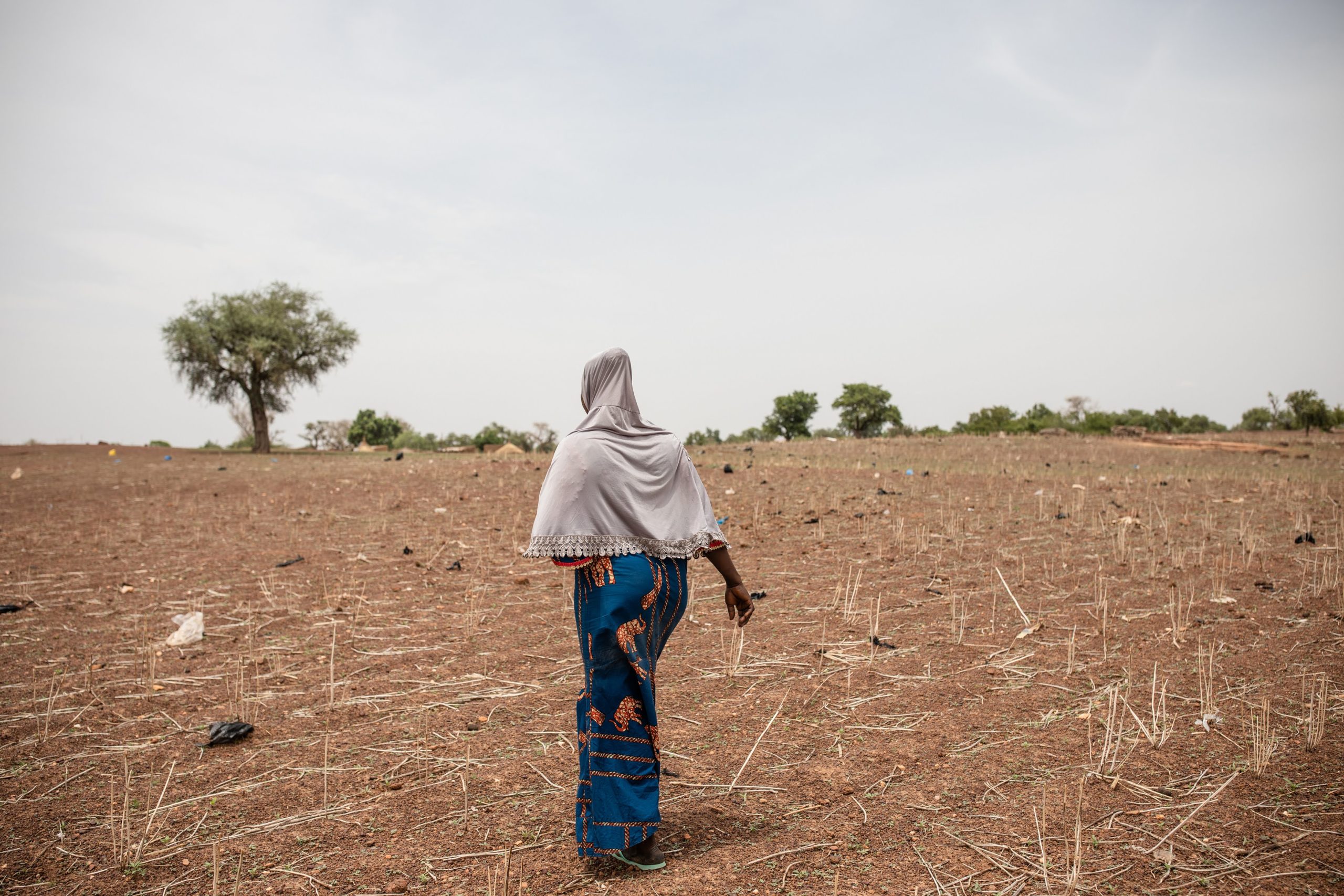
15 Sep The Sustainable End of Hunger Happens Locally, New UN Report Released
783 million people are living in hunger. Rural communities hold the answer.
This year’s State of Food Security and Nutrition in the World (SOFI) Report, launched July 12, 2023, revealed that up to 783 million people around the world are living in hunger. While this remains relatively unchanged* from the previous year, factors such as conflict, poverty, climate, economic shocks and COVID-19 have made it unlikely that we will meet the 2030 Sustainable Development Goal of ending hunger without significant changes to our global and local food systems.
In line with this year’s SOFI Report findings, we at The Hunger Project know that the global food crisis demands a bold, comprehensive, locally-led approach that addresses the complex issues that intersect with hunger, such as gender equality, access to education, the digital divide, conflict and climate action in community development. Across the rural communities we work with in Africa, South Asia and Latin America, we have seen the development of sustainable, equitable food systems — locally-led systems in which every person has reliable access to nutritious food. We know that, through radical collaboration, a world without hunger is possible.
What can you do?
Communities have the answers, but they are often denied access to the resources needed to take action. Individuals and civil society organisations need to call on governments and the private sector to allocate meaningful resources to sustainable, community-led solutions.
NOTABLE FINDINGS FROM SOFI 2023
- UP TO 783 MILLION PEOPLE IN THE WORLD LIVE IN HUNGER.
- IN AFRICA, 1 IN 4 PEOPLE FACE HUNGER, MORE THAN DOUBLE THE WORLD AVERAGE.
- APPROXIMATELY 630 MILLION PEOPLE WILL BE CHRONICALLY UNDERNOURISHED IN 2030.
- NEARLY 148.1 MILLION CHILDREN UNDER FIVE YEARS OF AGE (22.3%) ARE STUNTED, AND 45 MILLION (6.8%) FACE WASTING
- THE MAJORITY OF THE PEOPLE LIVING WITH CHRONIC HUNGER TODAY ARE WOMEN, AS 27.8% OF ADULT WOMEN FACING CHRONIC FOOD INSECURITY WERE MODERATELY OR SEVERELY FOOD INSECURE, COMPARED WITH 25.4% OF MEN.
Investing Rurally is Investing Globally
This year’s report highlights how locally-led solutions in rural areas are critical to addressing the hunger crisis globally. As Alvaro Lario, President of International Fund for Agricultural Development, said during the SOFI 2023 Launch Session, “Investing in rural development is key to reducing poverty and hunger in rural, urban and peri-urban areas alike.” Rapid urbanization often leads to the neglect of rural areas, resulting in limited access to markets and services, further deepening food insecurity. Strengthening linkages between urban and rural areas is crucial for addressing global hunger.
Creating sustainable, interconnected systems requires full participation from those living across the rural-urban continuum. SOFI 2023 reaffirms the importance of local leadership, declaring that development will only be sustainable when people have the right tools and resources to lead their own development. Hunger Project programs build a path to self-reliance by leveraging local partnerships and positioning women as change agents to enable communities to develop their own solutions to unique challenges.
Calling for a Coordinated Approach
The report also calls for coordinated investment by governments, civil society and the private sector in ending hunger in rural areas as a tactic for preventing hunger in urban areas. At The Hunger Project, we are committed to forging partnerships with grassroots organisations, government leaders and communities around the world. We employ a holistic approach that empowers women, mobilizes communities and foster partnerships with governments to end hunger and poverty.
A one-size-fits-all approach often falls short in addressing the diverse factors contributing to hunger. As Director General Qu Dongyu of the FAO said at the SOFI 2023 event, “Solutions should be localized and transformed to meet local context.”
Gender Gap Progress
In positive developments, the report elevated progress in gender-based food insecurity at the global level. In the wake of the pandemic, gendered-based food insecurity in 2021 rose to 3.8 percentage points. In 2022, reporting finds that it has declined to 2.4 percentage points. A global emphasis on the importance of women continues to create a new future of possibility.
WHY LOCAL CONTEXT MATTERS
ENGAGING LOCAL COMMUNITIES AND STAKEHOLDERS IN THE DESIGN AND IMPLEMENTATION OF SOLUTIONS IS ESSENTIAL FOR THEIR SUCCESS AND SUSTAINABILITY. BY UNDERSTANDING THE LOCAL ECOSYSTEMS, CULTURAL PRACTICES AND SOCIO-ECONOMIC DYNAMICS, WE CAN DEVELOP CONTEXT-SPECIFIC INTERVENTIONS THAT EFFECTIVELY TACKLE HUNGER AND STRENGTHEN RESILIENCE. LOCALIZATION ALSO INVOLVES RECOGNIZING AND LEVERAGING TRADITIONAL KNOWLEDGE AND INDIGENOUS PRACTICES THAT HAVE SUSTAINED COMMUNITIES FOR GENERATIONS. BY HARNESSING TECHNOLOGY, EMPOWERING INDIVIDUALS WITH RELEVANT SKILLS AND TAILORING INTERVENTIONS TO LOCAL CONTEXTS, WE CAN FORGE A MORE EQUITABLE AND RESILIENT FOOD SYSTEM.
By bridging efforts and enacting change within governments, food systems, education, health and communities, our work at The Hunger Project lays the groundwork for sustainable progress leading to self-reliance.
Widespread hunger signifies deep-rooted challenges and exposes vulnerabilities in our current food production, distribution and consumption patterns. Understanding these implications is crucial for addressing the global food crisis and shaping an equitable and sustainable food system. This year’s SOFI Report explores those implications and proposes a coordinated path forward for all of us.
The 2023 State of Food Security and Nutrition in the World report was published on July 12, 2023, jointly by the Food and Agriculture Organisation of the United Nations (FAO), the International Fund for Agricultural Development (IFAD), the United Nations Children’s Fund (UNICEF), the World Food Programme (WFP) and the World Health Organisation (WHO).
*Though this number is lower than last year’s report, SOFI 2023 reporting agencies caution against perceiving this as an objective reduction in hunger. Reporting gaps from key regions may not be presenting a comprehensive picture.

